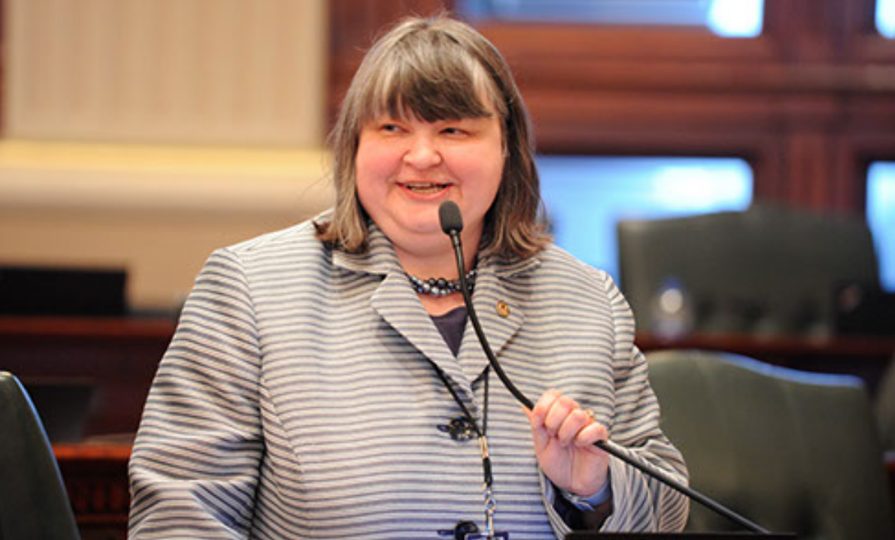Pro-life advocate Babette Holder called on Illinois state Rep. Dianne Pappas to be formally reprimanded this week for saying men should be castrated to end abortion.
Holder, a pro-life advocate in the black community and president of the Frederick Douglass Foundation, told the DuPage Policy Journal that Pappas’ comments are unacceptable.
“She needs to be censored,” she told the news outlet. “There needs to be accountability when you make these kinds of statements, and you’re supposed to be a public servant.”
Pappas is a pro-abortion Democrat who supports a radical new bill that would treat abortion as a “fundamental right” and strip away even minor protections for unborn babies and medical professionals who object to abortions. Pro-life voters fear the bill could pass with Democrats in control of both state houses and the governor’s office.
Earlier this month, pro-lifers from her district met with Pappas to voice their opposition to the legislation. During two separate conversations, Pappas reportedly told her constituents that castrating men would help end abortions, according to the report.
Jackie Hayden, a pro-life Republican from her district, was present during one of those conversations.
“You know ladies, with technology the way it is, we wouldn’t have an abortion problem if we applied a plan,” Pappas said, according to Hayden’s account of the interaction. “Now, I’ve been told it’s a bit radical, but if we allowed men to be castrated, took the sperm to the bank, collected tax dollars on it for storage, then when it’s time, to have the man decide he’s ready to begin a family…. well then, problem is solved!”
The local news confirmed that another constituent said Pappas made similar remarks about castrating men to them during a separate meeting. It also repeatedly contacted Pappas for comment, but did not receive a response.
Reacting to the reports, Holder said the lawmaker’s remarks have “racist overtones” and should be formally condemned.
Follow LifeNews.com on Instagram for pro-life pictures and videos.
“It has racist overtones, especially at a time when there is actually a debate about reparations,” she said.
In addition to her work in Illinois, Holder is a speaker with the National Black Pro-Life Coalition. She also was part of a group of pro-life African Americans who drew national attention to the horrific Kermit Gosnell abortion case in Philadelphia. Gosnell was convicted of murdering three newborn babies and numerous other crimes in his “house of horrors” abortion facility.
In Illinois, pro-lifers have been mounting a strong fight against radical pro-abortion legislation. State lawmakers have not moved forward with the bill recently. One possible reason is the massive public opposition. In March, so many Illinois pro-lifers flooded the capitol in opposition to the bill that police had to close the building due to overcrowding.
However, there still is a chance that state lawmakers will move forward with the pro-abortion legislation and end the very limited protections Illinois has for unborn babies.
The bill would prohibit the state from interfering in any way with abortions. It would erase criminal penalties for performing abortions and allow non-doctors to do them. The legislation also would repeal the partial-birth abortion ban, abortion clinic regulations and conscience protections for medical workers.
A second bill also would repeal the state parental notification law, which requires underage girls to inform at least one parent before she has an abortion.
The Thomas More Society described the bill as “the most radical piece of abortion legislation that has ever been introduced in Illinois.”
Polls show that the public does not support such radical proposals. A recent national poll by Marist University found that three in four Americans (75 percent) say abortion should be limited to – at most – the first three months of pregnancy. This includes most Republicans (92 percent), Independents (78 percent) and Democrats (60 percent).
The bills are pending in the 101st General Assembly as House Bills 2467 & 2495 and Senate Bills 1594 & 1942. The Thomas More Society detailed analysis can be found here.
ACTION: Contact Illinois lawmakers to oppose the bill.

To Read the Full Article Please Click Here
Author: Micaiah Bilger




